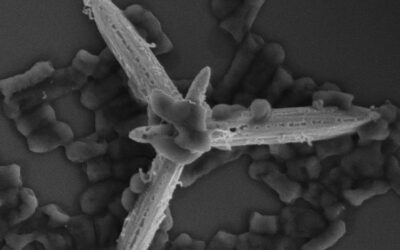Nicotine sustains tobacco addition, but its biological effects have not been fully elucidated. Using a proteomics approach, Drs. Paulo and Gygi from the Harvard Medical School provide evidence that nicotine exposure changes the abundance of membrane proteins implicated in signal transduction and autophagy.
There is ample evidence linking tobacco smoking and disease. During the combustion of tobacco, nicotine is transferred to smoke and is directly absorbed by the lungs and by more distal organs via systemic circulation. The role of nicotine in smoking-related disease, if any, is largely unknown. While typically, nicotine effects have been studied in the context of lung and brain cell models, the absorbed nicotine can reach high concentrations in other organs and induce systemic effects.
As a step toward elucidating the systemic response to nicotine, the researchers studied the global proteomic effects of nicotine on four human cells lines derived from different tissues including embryonic kidney, cervical adenocarcinoma, pancreatic stellate cells, and bone marrow-derived neuroblastoma. Quantification based on isobaric tag technology (TMT10-plex) and high-resolution mass spectrometry was used to analyze the relative abundances of 8590 proteins across the four cell lines as affected by nicotine exposure. The majority of the differentially abundant proteins are membrane-related and have roles in signal transduction and several are involved in autophagy, the intracellular degradation system allowing the recycling of cellular components. Autophagy is implicated in a broad range of physiological and pathophysiological roles.
Among the dysregulated proteins the authors highlight the amyloid precursor protein, whose proteolytic product Aβ is the main component of amyloid plaques found in the brains of Alzheimer’s disease patients; the amyloid precursor-like protein 2, a member of the nicotinic acetylcholine receptor’s interactome; the lysosomal-associated transmembrane protein 4B, which promotes autophagy and tolerance to metabolic stress in cancer cells; and the nuclear receptor coactivator 4, a transcriptional co-regulator, coactivator of the PPARγ and an important factor in ferritin degradation and autophagy. The proteomics data are publicly available for further analysis and interpretation.
Elucidating the cellular response to nicotine on the proteome level is an important step to fully understand its biological effects. The outlined methodology can be re-applied in other cells and animal models to provide further insights into the effects of nicotine exposure including dose response studies.

















